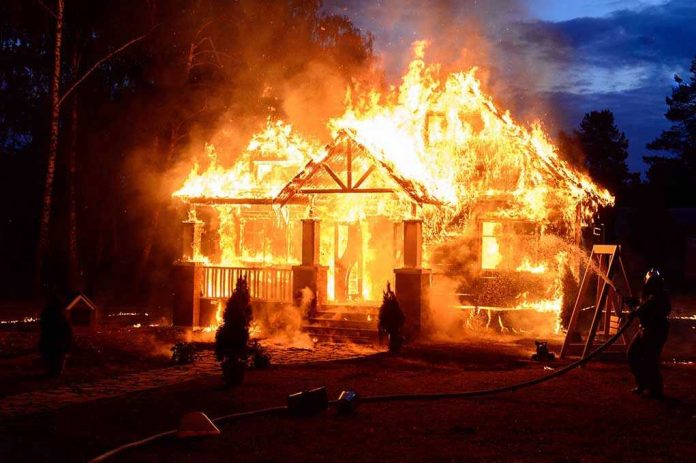
The burning of Judge Diane Goodstein’s home has ignited a fiery debate about the safety of judges who dare to challenge the Trump administration.
Story Overview
- Judge Diane Goodstein’s home was destroyed by fire days after ruling against Trump.
- No evidence of arson found, but investigation continues.
- Incident highlights threats and hostility toward judges in politically charged cases.
- The fire fuels speculation about political violence against the judiciary.
The Incident and Its Immediate Impact
A fire consumed the Edisto Beach home of Judge Diane Goodstein, a South Carolina Circuit Court judge. This catastrophe followed her decision to block the release of voter registration data to the Department of Justice, a ruling that drew ire from the Trump administration. Although Judge Goodstein was not present during the fire, her husband and two other family members sustained serious injuries, intensifying the spotlight on this tragic event.
A fire engulfed the South Carolina home of Judge Diane Goodstein on Saturday, leaving three individuals hospitalized.
The blaze presented "significant challenges" to the St Paul's Fire Department, including limited water supply in the area. Occupants were rescued using kayaks,… pic.twitter.com/KWJYH0vuvX
— FOX 9 (@FOX9) October 6, 2025
While the South Carolina Law Enforcement Division (SLED) has not found evidence of arson, the timing of the fire has sparked widespread speculation. The blaze occurred amidst an ongoing investigation into threats made against Judge Goodstein following her controversial ruling. This context has led many to question whether this was a mere coincidence or a symptom of a more sinister trend of political violence against the judiciary.
Background and Political Context
Judge Goodstein’s ruling came in response to President Trump’s executive order aiming to restrict non-citizens from registering to vote, which led to the Department of Justice’s requests for voter data from states. Her decision to block South Carolina from complying was met with fierce criticism from the Trump administration, setting the stage for heightened tensions. The South Carolina Supreme Court’s subsequent reversal of her ruling did little to quell the animosity directed at her.
This incident is not isolated. It is part of a broader pattern of threats against judges presiding over cases with significant political implications. The rhetoric from some Trump administration officials, including Assistant Attorney General Harmeet Dhillon and Deputy Chief of Staff Stephen Miller, has been criticized for potentially inciting hostility towards judges like Goodstein, who are perceived as obstacles to their agenda.
The Role of Threats and Intimidation
Judges across the United States have increasingly found themselves targets of threats and harassment, particularly in politically sensitive cases. This growing trend poses a significant risk to judicial independence and the rule of law. The fire at Judge Goodstein’s home underscores the precarious position of judges who make rulings that defy powerful political interests.
Law enforcement and political leaders are caught in a delicate balance. On one hand, ensuring the safety and independence of the judiciary is paramount. On the other, they face the challenge of addressing the root causes of such hostility without exacerbating the political divide. The current climate of polarization amplifies the need for a measured and evidence-based response to incidents like the Edisto Beach fire.
Ongoing Investigation and Societal Implications
The investigation into the fire at Judge Goodstein’s home remains active, with no definitive conclusions yet regarding its cause. SLED has urged caution against speculation and warned about the dangers of jumping to conclusions without evidence. Despite this, the fire has intensified the debate over the safety of judges and the broader implications of political rhetoric on public officials’ security.
The incident has prompted calls from Democratic lawmakers for a thorough investigation and has reignited discussions about the impact of aggressive political rhetoric. As the investigation continues, the fire serves as a stark reminder of the potential consequences of a polarized political environment where judicial decisions are increasingly politicized.



